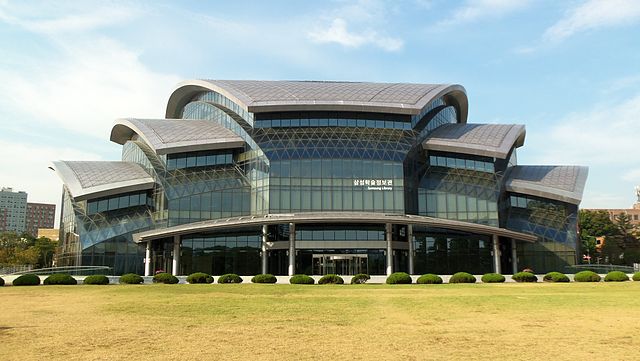SKKU: Prof. Jaehwan Lee Received Ottogi Hamtaiho Academic Award, Prof. Hanmin Woo Received Daesang Academic Award
Jaehwan Lee, a professor of Food Science and Biotechnology, was selected as the winner of the Ottogi Hamtaiho Academic Award by Ottogi Ham Taiho Foundation (Board Chairman: Youngjun Ham) in recognition of his innovative research achievements in the food sector. The award ceremony was held on July 8 (Thu) at the Daejeon Convention Center (2021 International Conference of Korean Society of Food Science and Technology and Annual Meeting).
Prof. Lee received the plaque and prize money, and was recognized for his contribution to the development of the food industry through basic research such as “determination of maintenance oxidation mechanism and development of anti-oxidant activities” and “development of maintenance oxidation stability objectively.” In the past 10 years, he published 110 academic journals (SCI(E) level journals: 104, domestic journals: 6), 3 domestic patents, and 10 books.
Prof. Lee said “I will make more effort to contribute to the revitalization of the future food industry through the development of vegetable protein which substitute animal protein and fat-based food materials and the development of custom flavoring techniques.”
Hanmin Woo, a professor of Food Science and Biotechnology, won the ‘Daesang Academic Award’ sponsored by Daesang in recognition of his excellent research results at 2021 48th Annual Meeting & International Symposium held by the Korean Society for Microbiology and Biotechnology.
On June 24 (Thu), the 48th Annual Meeting & International Symposium (Host: The Korean Society for Microbiology and Biotechnology) was held at Bexco, Busan. At the symposium, the Korean Society for Microbiology and Biotechnology and Daesang selected Prof. Hanmin Woo in recognition of his outstanding research and awarded him the plaque and prize money.
Industrial microorganisms are cell factories that can produce new materials for eco-friendly chemicals and high-value agricultural and fisheries products, which have recently attracted attention as a key catalyst for carbon neutrality and high-value industries. Recently, SKKU’s BioFoundry Research Center (Director Hanmin Woo) operates an automated biofoundry that reduces repetitive working hours and processes large amounts of samples at high speed by combining robotics technology and CRISPR genetic engineering technology. In the future, he plans to support biotechnology to the community through open platforms, and accelerate the development of industrial microorganisms that can realize sustainable and social values.
Prof. Woo said, “I will try harder to develop the bio-industry so that it could lead the fourth industrial revolution and carbon neutrality through the development of core source technology for industrial microorganisms.”

